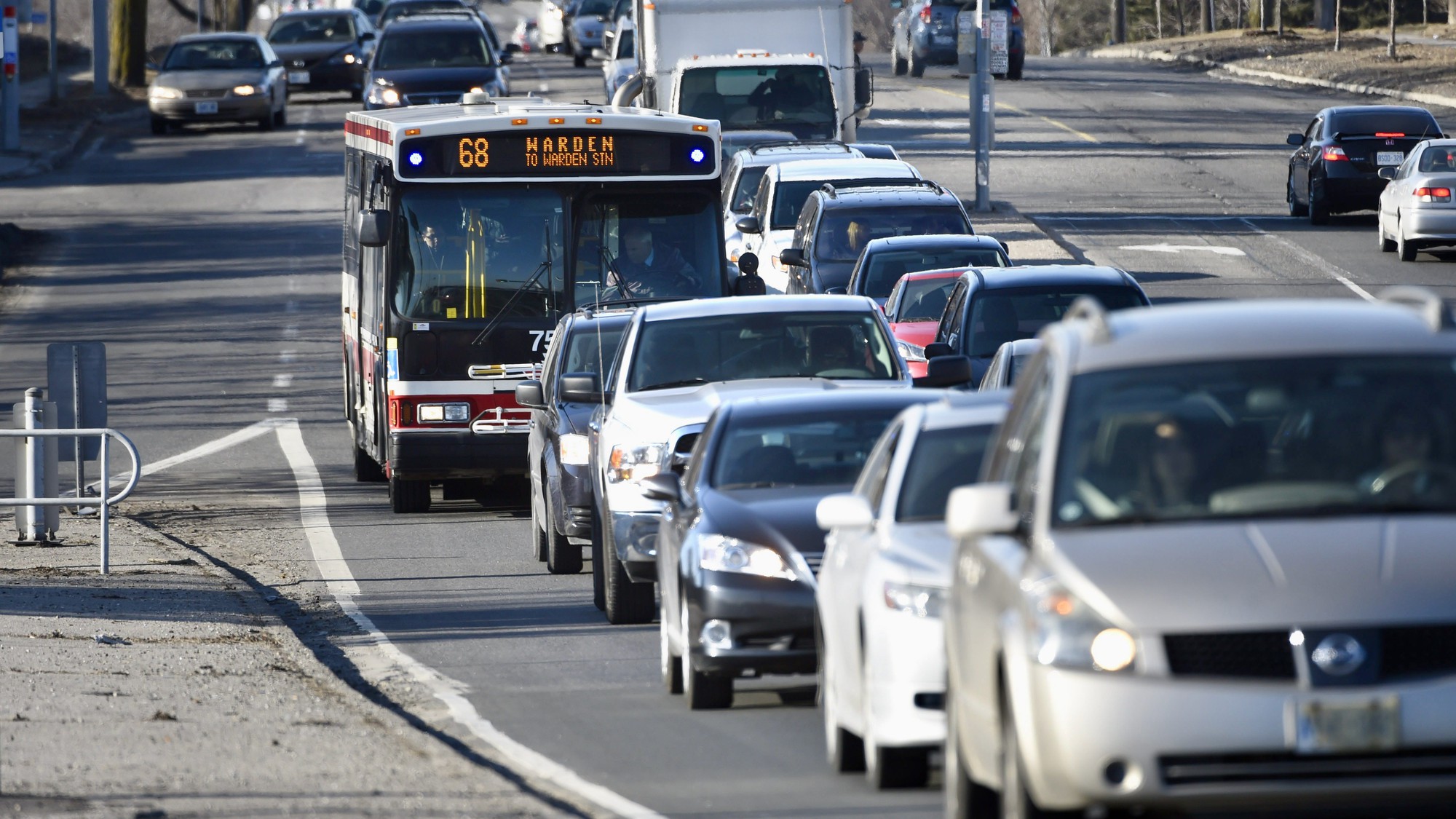Toronto is falling short of its climate targets despite the goal of cutting greenhouse gas emissions to net zero by 2040, according to experts.
City Council adopted the Net Zero Strategy in December 2021, which outlines the steps Toronto needs to take to reach zero emissions 17 years from now. The plan is one of the most ambitious in North America, according to Toronto’s website.
“The negative portion is that the city is not anywhere close at this point to meeting those climate targets,” said How-Seng Chong, climate campaigner at the Toronto Environmental Alliance.
There is not enough funding to reduce greenhouse gas emissions production at the moment, he said. The city is also reversing its commitment to transit, a service that needs to be reliable, more frequent and eventually free, Chong said.
The 2021 TransformTo Net Zero Strategy reported Toronto needs to implement some short-term targets before cutting off its emissions completely. These steps include cutting greenhouse gas emissions by 45 per cent by 2025, and 65 per cent by 2030.
While greenhouse gas emissions fell worldwide to their largest decline on record by around 2.4 billion tones in 2020 due to the pandemic, Toronto saw a 13 per cent reduction in the same year from 2019, according to the 2020 Sector-Based Greenhouse Gas Emissions Inventory by the City of Toronto.
Chong said the COVID-19 pandemic affected how Toronto should adapt and respond to climate change.
“The main challenge that has come out of the pandemic is that it actually slowed down a lot of the changes that we actually need,” Chong said. “We’ve lost a couple of years and so we’re a little behind in reaching our 2025 greenhouse gas emission reduction goal.”
The city’s inventory reports the most significant decrease in emissions in 2020 was driven by the transportation sector. Transportation contributed by about one-fifth to cut emissions.
The pandemic also seems to have changed how people move around the city, Chong said.
“It had a serious impact on how the TTC works and how it is funded,” Chong said. “People aren’t going to downtown five days a week to go to work anymore, and that’s having an impact on transit funding.”
The latest TransformTo Net Zero Strategy report indicates transportation is the second-highest source of emissions in Toronto, accounting for 36 per cent of total emissions, while 57 per cent comes from homes and buildings, and only seven per cent from waste.
Fossil fuels are still largely used to heat space and water, but for Toronto to cut its emissions, the city wants to build near net-zero houses by 2030 and bring down the 2008 emissions levels from already-existing buildings.
Experts and scientists have long since confirmed the link between air pollution and diseases, not only respiratory health problems, but also cardiovascular diseases, birth outcomes, brain development and function, cancer, and diabetes.
Air pollution is one of the primary effects of climate change on health in Canada, said Alison Williams, a researcher at McMaster University’s Centre for Climate Change.
This past summer, Torontonians experienced the effects of climate change first-hand with major heat waves.
“The heat is particularly problematic for the youngest and the oldest because oftentimes they don’t feel the heat as much as the people in middle life,” Williams said. “As a consequence of that insensitivity, they can very easily experience heat exhaustion.”
There are also increasing problems with respiratory conditions, Williams said.
Air pollution from all sources in Toronto is responsible every year for 1,300 premature deaths and 3,550 hospitalizations, according to Toronto Public Health.
Williams said air pollution is increasingly problematic in large metropolitan areas because of the higher number of vehicles on the roads and the slow transition to clean energy within the industrial sector.
“Steelworks and the manufacturing of steel, for example, are very much negatively impacting the air quality within Hamilton and, more broadly, the GTA,” Williams said. “If you put together a higher rate of air pollution and particulate matter with heat, you have the smog effect.”
Williams said air quality in Toronto and Hamilton is not good, especially during the summer.
“Air quality changes every day in every single city, but across Canada, Toronto and Hamilton are usually the top poorest cities with respect to air quality,” Williams said.
For Chong, Toronto can still reach its climate goals by 2040 by just focusing on the Net Zero Strategy.
“Make sure that the plan is done,” Chong said. “We can get there because the plan is great. We do have to work for it. We do have to push forward, we have to push our politics for it, and we do have to campaign for it.”

